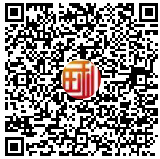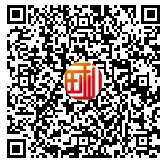By the time the Montgomery Improvement Association chose the 26-year-old Martin Luther King Jr. as its leader, the hours-old bus boycott by the black citizens of Montgomery, Alabama, was already an overwhelming success. King would later write that his unanticipated call to leadership "happened so quickly that I did not have time to think in through." "It is probable that if I had, I would have declined the nomination."
Although press reports at the time focused on his inspiring oratory, King was actually a reluctant leader of a movement initiated by others.(The boycott began on Dec. 5 1955.) His subsequent writings and private correspondence reveal man whose inner doubts sharply contrast with his public persona. In the early days of his involvement, King was troubled by telephone threats, discord within the black community and Montgomery's "get tough" policy, to which king attributed his jailing on a minor traffic violation. One night, as he considered ways to "move out of the picture without appearing a coward," he began to pray aloud and, at that moment, "experienced the presence of the God as I had never experienced Him before."
He would later admit that when the boycott began, he was not yet firmly committed to Gandhian principles. Although he had been exposed to those teachings in college, he had remained skeptical. "I thought the only way we could solve our problem of segregation was an armed revolt," he recalled. "I felt that the Christian ethic of love was confined to individual relationships."
Only after his home was bombed in late January did king reconsider his views on violence. (At the time, he was seeking a gun permit and was protected by armed bodyguards.) Competing with each other to influence King were two ardent pacifists: Bayard Rustin, a black activist with the War Resisters League, and the Rev. Glenn E. Smiley, a white staff member of the Fellowship of Reconciliation. Rustin was shocked to discover a gun in King's house, while Smiley informed fellow pacifists that King's home was "an arsenal."
1. What did King think of his nomination as leader of the Montgomery Boycott?
A) He hadn't expected it. www.yingyusanji.com
B) He had to think about it carefully.
C) He would refuse to accept it.
D) He was prepared to accept it.
2. Why was King unwilling to lead the movement at first?
A) Because he doubted if the boycott would be successful.
B) Because he was troubled with a traffic accident at that time.
C) Because he thought he was too young to be a leader.
D) Because he himself didn't start the boycott.
3. Which of the following is Not mentioned as something that happened at the beginning of the black people's movement?
A) King was put into prison.
B) Black people disagreed with each other.
C) King's armed revolt proposal was turned down.
D) Black people found it hard to accept the policy pursued in Montgomery.
4. Which of the following was the immediate cause that made King change his view on violence?
A) The education he received in college.
B) The attack of his home.
C) The influence of two active non-violence advocates.
D) The verdict of the Supreme Court.
5. In Paragraph 4, the last sentence "King's home was 'an arsenal'" means
A) King's home was a place where people got together.
B) King's home was a place where people tested bombs.
C) King's home was a place where weapons were stored.
D) King's home was a place where bombs exploded.
答案:ADCBC












